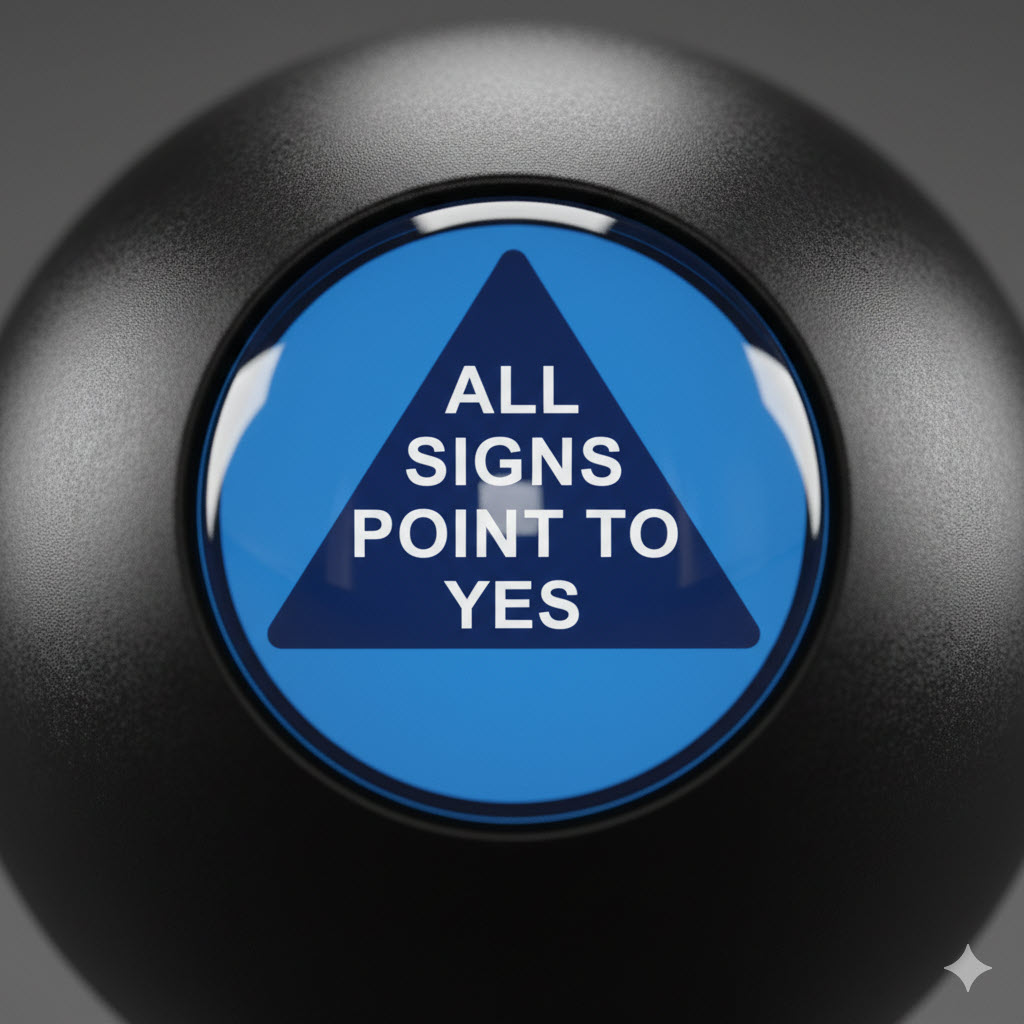
AI & Society
A series of articles about the most significant technology shift of our lifetime
1 Overview
4 The Failure Of Federal Governance
6 Messy, Complicated & Uneven
The good news: Ten years from now we might not quite be living in a utopia but AI will definitely improve many things about our lives.
Score one point for optimism.
The bad news: At exactly the same time the future might be a dystopia, possibly for everyone if the economy crashes from AI overinvestment, and almost certainly for displaced workers during the period innocently referred to as a “transition.” It might take decades to get through the “transition” before we get to all the jobs that don’t exist yet.
Plus there’s the deterioration of society from disinformation and AI slop, and that niggling worry about the possible extinction of humanity, and the way the US government is addressing all of it by putting its fingers in its ears and shutting its eyes and saying “LA LA LA I CAN’T HEAR YOU AND ALSO I HATE YOU.”
Score eleventy-zillion points for pessimism.
At best, we have begun a messy, complicated, and uneven journey to whatever comes next.
We’ve gone through this before. Every fundamental technology shift in history has displaced workers – ask the groomers and stable hands who lost their jobs when trains and cars reduced the demand for horses, ask the Luddite textile workers who smashed the newfangled steam-powered looms.
There have always been alarmists preaching that civilization will suffer if new technology is allowed to spread. The Church and nobility believed the printing press would be a source of disinformation and dangerous ideas, yet humanity survived.
Why is it so hard to be optimistic about AI?
Maybe two reasons: AI is arriving freakishly quickly, and it’s inscrutable to almost all of us.
Speed Think about modern climate change. The earth’s temperature has swung from one extreme to another in geologic history, but those changes unfolded over tens of thousands of years, and the planet had time to adjust. The earth’s temperature today is rising the same amount, not over thousands of years but over a hundred years, and species can’t adapt genetically to keep up.
AI arrived out of nowhere and it’s being developed and adopted at the speed of light, far faster than any previous foundational technology. It’s less than three years since OpenAI announced ChatGPT, the first generative AI product. The changes to our jobs, our society, and our world are happening too fast for us to adapt.
Opacity None of us really has a clue what’s going on. We don’t understand the first thing about AI.
“You can enter technological moments where the mystery, the eerie magical unsettlement, resides not just in how the new thing works but in what it does, where it’s coming from, and what it might be capable of doing next. I don’t fully understand how my laptop works, but I know who made it and why, and I have a pretty good sense of its capacities and limits. That’s not the case with the technologies that are in the process of remaking our world. The zone of uncertainty is larger, the sense of mystification more intense.”
It’s commonplace wisdom that the best use of AI is to augment work done by people. In the short term, too many employers will attempt to replace people with AI and many of those attempts will fail.
It’s a certainty that there will be fewer entry-level jobs. I’ve spoken to recent college graduates who studied programming because they were assured that it would be the foundation of a happy career. AI can write better code than a recent graduate – and it does it instantly, 24/7, at comparatively low cost. It’s only been three years since AI programming first appeared and entry-level programming jobs are already almost gone.
My son just started law school. If he comes out with the skills I had when I left law school – to analyze and summarize cases – he won’t get hired because the law firms will be using AI to do that. I don’t know if the law schools will adapt effectively to teach him how to stay a step ahead of the AI tools for lawyers. The entry-level displacement is very real.
Cory Doctorow is blunt – and I can’t really disagree.
“The topline growth that AI companies are selling comes from replacing most workers with AI, and re-tasking the surviving workers as AI babysitters (“humans in the loop”), which won’t work. AI cannot do your job, but an AI salesman can 100% convince your boss to fire you and replace you with an AI that can’t do your job, and when the bubble bursts, the money-hemorrhaging “foundation models” will be shut off and we’ll lose the AI that can’t do your job, and you will be long gone, retrained or retired or “discouraged” and out of the labor market, and no one will do your job.”
I’ve deliberately steered away from the larger societal changes this year – the dismantling of the federal government, the commencement of civil war. AI is not being implemented in isolation. Our experiences with AI will be affected by the other forces battering our society. It’s not just a zone of uncertainty – everything about the future is shrouded in mist.
After all the research and the Deep Thoughts, I keep getting the same answer to the questions I posed at the beginning of this series.
Will AI be good for the world, or will it be a destructive force? Are we launching a transformational shift that will restructure society, or is AI overhyped, with modest effects that won’t outweigh other negative trends? Are we heading toward an AI-powered renaissance, or stagnation and social disruption?

[Click here for the NotebookLM notebook with a representative selection of the source material used for this series.]
